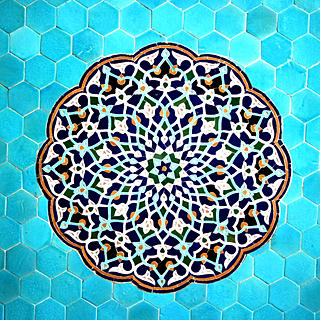Abdullah Al Tekreeti | Getting to Japan
- muslimsabroad
- Aug 1, 2019
- 4 min read
Abdullah Al Tekreeti, a student from the University of California, Davis shares his experiences studying abroad in Japan.

PRE-DEPARTURE:
I’m an immigrant to the United States that came here with my family in high school. As any conservative Muslim family, my parents viewed most of the culture as foreign and not acceptable for us. This created an idea of “family vs. the world” in which my parents were very strict about going out with friends and even deciding on going to a distant university. Their logic was always that we cannot be alone and need to stick together. I first entertained the idea of studying abroad to work around stress from courses. The idea did not seem like something I could preach to my parents and have it approved. Especially with the cost of the program. I decided to continue with the program and tell my parents later when it was more concrete.
After the application, I started looking at many scholarships and applied to a handful each day. I was prepared to take out loans because my parents told me that if they agree, then I would be covering the cost entirely. A twist was that my father didn’t allow me to work because I’m pre-med and he believed that work would distract me.
I didn’t hear back from most scholarships. So, I ended up basically starting and finishing the entire Gilman application on the day it was due because I didn’t think I would be getting it. I even turned in a wrong transcript and wrote a haphazard follow-up project proposal. The scholarship is very intimidating because of its reputation and I knew a few people more qualified than me who also applied.
I was very happy when I received the scholarship because it basically covered a large portion of the program and gave me the freedom to create a schedule for my abroad experience. My parents actually began helping me look for flights and preparing for the trip, so it was nice to have them approve it after all the bargaining.
MID-DEPARTURE:
In Japan, I was seen more as an American than a Muslim. However, it was difficult to learn the ingredients of the foods and my first words were “no pork” and “please.” Navigating the restaurant system was the most difficult. While I was treated as an American, the only instance of racism or prejudice was from another person in the program (roommate). I quickly shut it down and tried to establish that it was unacceptable. The person was actually from a Muslim family so it was more like a back-stab, but he was essentially racist to everyone non-White (not going to bore you here…). Otherwise, everyone was incredibly nice, and I made many friends and had amazing journeys and mishaps.
Another instance of me being aware of my religion as an outsider was when I visited a historical mosque (Tokyo Camii) it was a very beautiful mosque and people treated it as one of the shrines in Japan. While praying there, some Japanese onlookers sat behind us and watched and listened to the prayer. I noticed a few converts and I thought it was pretty cool. I didn’t get to speak to any of the other Muslims there because it was not a Friday prayer, so it was just a quick one.

One of the mishaps I had was while traveling to a mountainous area during a hurricane and basically sleeping with homeless people for a night. I told my parents about it after it was done and got the expected scolding. But it was an interesting story, much like the ones from Ibn Battuta (Moroccan adventurer) who I actually wrote about in my application essay. So I guess I stayed true to character. The Gilman people actually emailed me to check if I was doing well and I thought that was a very nice assurance about the situation then.
POST-DEPARTURE:
I tried to tell my family about the experience and the people, but they mostly focused on the souvenirs and photos. I think it was honestly weird how disconnected I felt. Like people wanted to hear some stories but they did not understand how significant they were. There were so many stories and I honestly do not think I shared 90% of them because I would get the usual “Wow, thank God you are safe” or “It sounds cool.” I felt much more independent after the trip and it really helped me see that I can survive without my parents. I had no background in the language, culture or people; but I still managed to achieve everything I hoped to during the time. I know becoming more independent is a cliché, but when I was forced out of my comfort zone by getting lost, sleeping outside, talking to people (both Japanese and American) it really helped me grow into a better person. Another thing that helped me was that I met so many wonderful people. It was like divine guide-ness!!! Whenever I was in a difficult situation, someone would help, or I would ask for help and they would go beyond my question to help, it really shows there are kind people everywhere.

The entire journey and the Gilman application really boosted my moral during difficult times and let me see that I can achieve a lot through my own effort.





















Comments